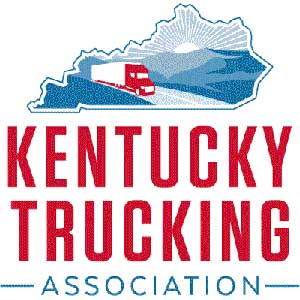Budget issues were the predicted and predictable hot topic for the 30-day session of the 2021 General Assembly. The outcome of the session was not that predictable. The General Fund and Road Fund budgets turned out to be somewhat routine copies of the prior year’s budget. Since Kentucky became a state in 1792, budgets covered two-year blocks of appropriations for each biennium until last year. The 2020 General Assembly broke the biennial pattern by adopting a one-year budget, thus requiring the 2021 General Assembly to enact a new budget for the second year of the current biennium.
Legislation expanding the powers and the authority of the General Assembly dominated the session. A series of bills were enacted to curtail the Governor’s authority to issue emergency orders and administrative regulations. Five such bills enacted during the first week of the session in early January assigned greater authority to the General Assembly in its oversight of actions by the Governor dealing with emergencies like COVID-19 and the broader authority of the Governor to issue emergency regulations dealing with the operations of state agencies. The legislature was in recess the last three weeks of January. When the session resumed on February 2, both the House and the Senate overrode the Governor’s veto of the five bills limiting executive emergency authority. The dispute between the Governor and the General Assembly quickly went to court. An injunction enabling COVID-19 emergency orders by the Governor continues in effect while an appeal is pending on the constitutionality of the new legislation.
Transportation-related legislation and bills that may affect the trucking industry passed during the 30-day session include the following:
SB 1 Limits any emergency declaration by the Governor to 30 days unless extended by the General Assembly. This bill is part of litigation pending appeal to the Supreme Court on the issue of separation of powers under the Kentucky Constitution.
SB 5 The House passed a revised version of SB 5 on March 30 with new language granting business owners limited immunity from acts or omissions arising from any COVID-19 claim. The Senate concurred in the House amendment, and the bill was sent to the Governor for his signature. There is a new definition of “COVID-19 claim” in the bill, which applies the limited immunity to “any claim or cause of action for an act or omission arising from COVID-19 that accrues on or after the date the emergency was declared on March 6, 2020, and until the emergency declaration is withdrawn, revoked or lapses.” This liability limitation replaces the Senate bill immunity limitation, which stated that an owner does not “assume responsibility, or incur liability, for any alleged injury, loss, or damage to persons or property relating to SARS-COV-2. The definition of “COVID-19 claim” in the bill, which protects businesses from paying damages for COVID-related liability exposure, is likely not a violation of the restriction in Kentucky Constitution Section 54, which prohibits the General Assembly from limiting damages for injury or death. Veto by the Governor is a possibility.
SB 49 Exempt’s home or community-based medical services from being required to have workers compensation coverage. The Governor’s veto message states, “these workers perform important services caring for Kentucky’s most venerable citizens. SB 49 would leave them without protection if their employers fail to pay them promptly and in full, or if they lose their employment or become injured on the job.” The veto was overridden.
SB 71 Standards for towing and storage of motor vehicles by tow truck operators. Signed by the Governor on March 22.
SB 75 Originally, SB 215 simply added the Office of Safety in the Transportation Cabinet and confirmed an executive order. The final version of the bill included the substance of SB 75, which will authorize local governments to establish a pilot project allowing off-highway vehicles to be operated on certain state and local roads, sun-setting on July 1, 2024. The bill was finally passed on March 30 and sent to the Governor.
SB 236 Eliminates the requirement for three letters of the alphabet and three numbers on standard, noncommercial motor vehicle license plates. Signed by the Governor on March 19.
HB 1, 3 & 5 Terminate Governor’s COVID-19 emergency orders 30 days after the effective date of the new legislation and impose restrictions on future emergency administrative regulations and government reorganizations. Court injunction suspends the new laws while appeal to the Supreme Court is pending on the issue of constitutionality.
HB 4 Constitutional amendment to allow the General Assembly to meet year-round by adding up to 12 additional legislative days and end each session on December 31. This proposal will be on the ballot for a popular vote in the 2022 general election.
HB 125 Establish a three-wheel motorcycle category. Signed by Governor by April 5.
HB 193 Transportation Cabinet Budget. Free Conference Committee Report #2 was adopted. Bills passed during the final two days of the session may be vetoed in part without any threat of being overridden since the session has ended sine die by operation of the Constitution. Since line-item vetoes are allowed for appropriations bills, the Governor may exercise this privilege on HB 193.
HB 278 Paycheck Protection Program loans are not subject to state income tax. Signed by the Governor March 17.
HB 328 Billboards to be regulated by Transportation Cabinet. Signed by the Governor March 18.
HB 472 Statute of limitations reviver on sex offenses involving minors. Signed by the Governor March 23.
HB 475 OSHA regulations by Labor Cabinet prohibited from being more stringent than Federal regulations. Vetoed on March 23. Governor’s veto overridden.
Rep. Sal Santoro’s road fund revenue bill increasing fuel tax rates and indexing rates annually based on a construction index failed to get any consideration. So, the future of the road fund may be a hot topic for the 2022 session of the General Assembly.










